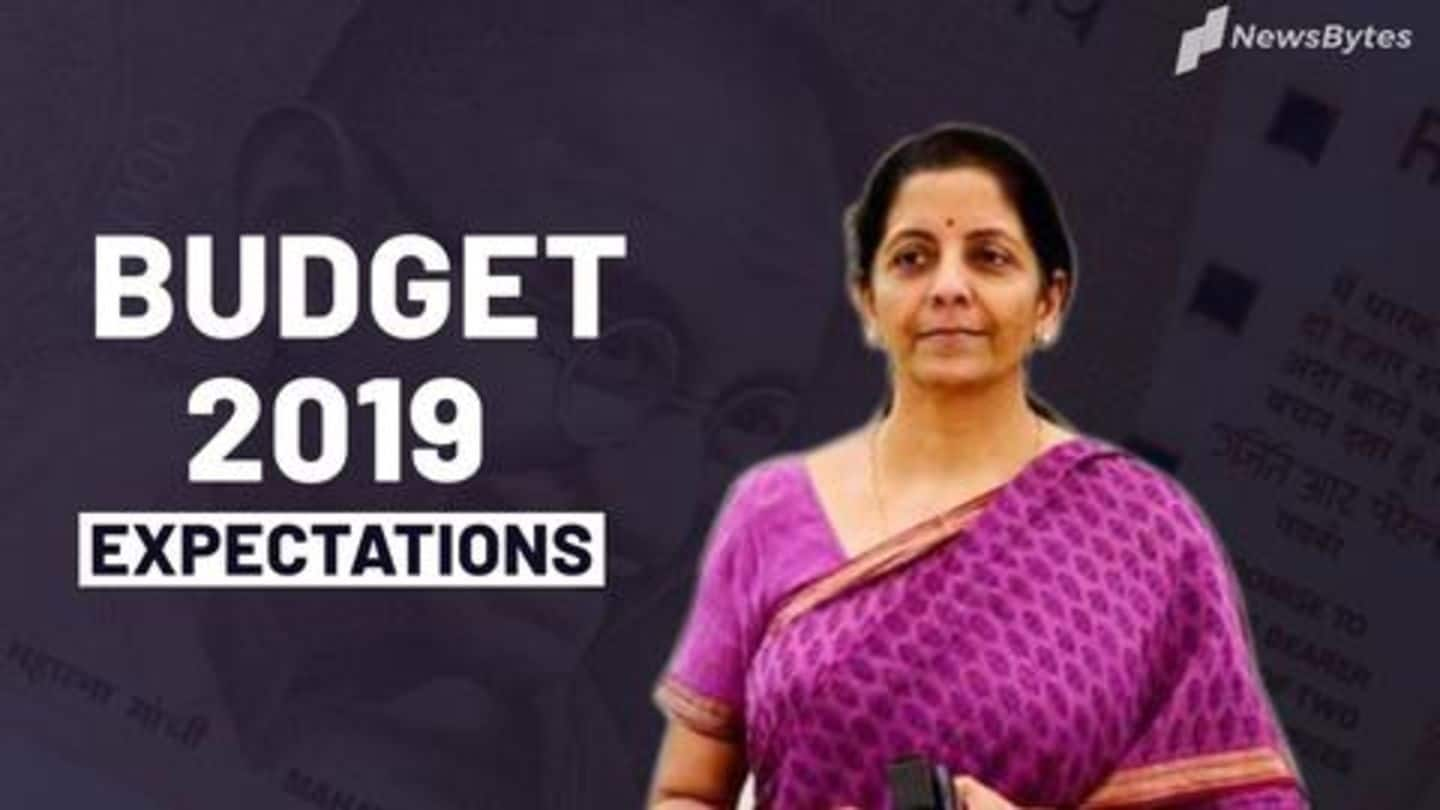
Union Budget 2019: What India expects from Nirmala Sitharaman
What's the story
Union Finance Minister Nirmala Sitharaman is all set to present her first budget on Friday, July 5. After India blessed Prime Minister Narendra Modi with a historic mandate, countrymen are hoping that the financial budget gives respite from slow economic growth and job crisis. While Sitharaman has her job cut out, here's looking at what India expects from her.
Salaried class
Salaried taxpayers are expecting changes in tax slabs
The salaried class is expecting a few changes in tax slabs. In the interim budget, presented by Union Minister Piyush Goyal, the government said those earning up to Rs. 5 lakh annually won't have to pay taxes. However, those whose salary fell in the window of Rs. 5 lakh and Rs. 10 lakh, were taxed at 20%, and they are expecting Sitharaman changes this.
80C & 80D
Deduction limit for Section 80C and 80D should be increased
Further, the salaried class is also hoping that the government increases deduction limit for Section 80C to Rs. 2 or Rs. 2.5 lakh. The deduction limit was increased to Rs. 1.5 lakh in PM Modi's first term. Considering expensive health-care, the taxpayers are also hoping that the government increases the deduction for Section 80D from Rs. 25,000 to Rs. 35,000.
NPS
Further, salaried class wants changes in Pension Scheme
As of now withdrawing money from the National Pension Scheme (NPS) is partially taxable. Currently, 40% of accumulated money, which is utilized for purchasing an annuity, is exempted from tax. Out of the remaining 60%, which the subscriber withdraws at time of retirement, 40% is tax exempt, whereas the rest 20% is taxable. Salaried employees are expecting that the entire 60% contribution becomes non-taxable.
Agriculture
Modi 2.0 needs to turn focus towards agriculture sector
The agriculture sector engages 50% of India's workforce and accounts for 16% of the GDP. Despite this, it is one of the most neglected sectors and there are high hopes that PM Modi will live up to his promise of improving the lives of farmers. To recall, in the interim budget, the government had announced that marginal farmers would get Rs. 6,000 annually.
Details
Government should focus on rainwater harvesting
There are high expectations that the Centre would work towards making trade more transparent and empowering Farmer Producer Organizations (FPO). Steps should also be taken to procure agri-commodities from farmers who directly benefit from the government's Income Support Scheme. Considering the looming water crisis, it is expected the Centre will allocate a chunk of agriculture budget in rainwater harvesting.
Start-ups
Start-ups want Centre to give more clarity on angel tax
Naturally, start-ups have a slew of expectations, and the one which tops the list is clarity on angel tax. Rajan Navani, Vice Chairman & Managing Director, JetSynthesys, said the government should do away with the current limit of Rs. 25 crore from DIPP certified credible investors. He added regulations like faster payment processing and relaxations in GST norms will also boost the start-up industry.
Banking
Banking sector hopes steps are announced to encourage cash-less economy
With the enactment of Insolvency and Bankruptcy Code, 2016, amendment of SARFAESI Act and setting up debt recovery tribunals, the BJP-led Centre has shown its intent towards changing the banking sector. But more steps need to be taken to improve the financial strength of the banking sector. Many are hoping that the government introduces measures to encourage a cash-less economy.
Fund Mangers
Amid liquidity crunch, here's what fund managers are expecting
Notably, Sitharaman is set to present the budget at a time when there is a liquidity crunch at non-financial companies. Speaking on his expectations, Nalin Moinz, chief investment officer, Edelweiss Asset Management Ltd, said he sees opportunities in consumption, exports, and financial services. Meanwhile, Vijay Krishna Kumar, head of liquid alternative investment, IDFC Asset Management Co, is waiting for a "concerted policy response to curb non-bank financial crisis".
India Inc.
Separately, India Inc. wants corporate taxes to be lowered
One of the main demands of India Inc. is lowering corporate tax. Jogendra Sethi, CFO, VIP Industries, said, "We have tax rates around 34.6% and there is DDT of around 20%, which comes on the corporates more than 40%." He underlined that the US brought down taxes to 21% and BRICS countries to 20%. Lowering tax will encourage local industries to invest more, he explained.